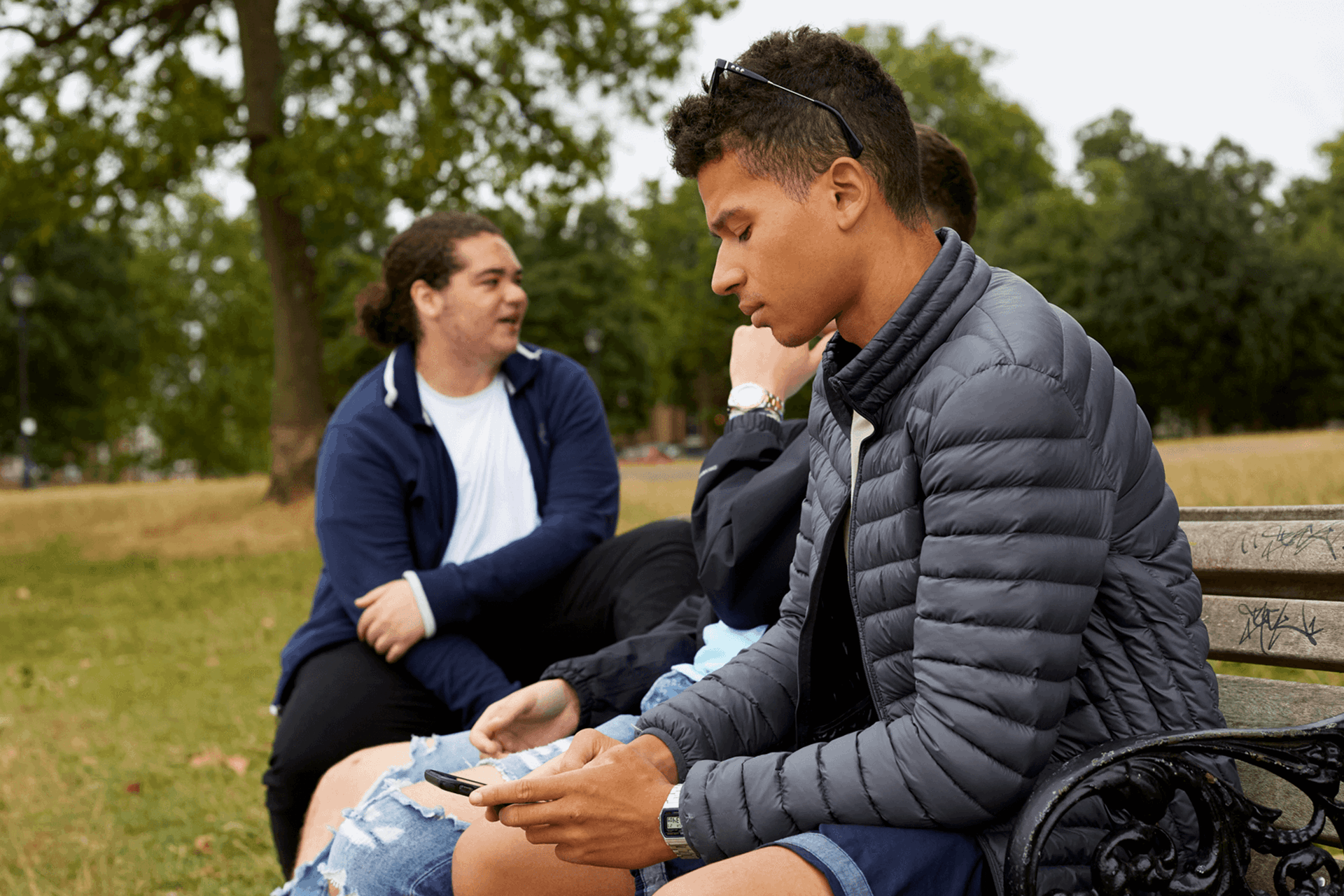Topics mentioned: problems at school, anxiety, neurodiversity
About: Just because you're finding school hard, doesn't make you 'naughty'. Our blogger shares their personal experiences with anxiety and dyslexia in school, explaining how behavioural issues often start when students' needs aren't being met.
If you struggle at school, I want you to know that you’re not alone. School made me feel worthless and I completely lost myself. I’d have this horrible pit of fear in my stomach the morning before a school day. I felt like I wasn’t going to get anywhere as I wasn’t academic and was struggling with my mental health. To this day, I can’t manage in a school setting but that’s ok, schools aren’t made for everyone.
I couldn’t manage in classrooms because I felt confined, the rooms were too noisy and bright, and I struggled academically and had dyslexia. I struggled to attend lessons because of the anxiety and fear I had. I felt like the odd one out, but now I’ve realised it’s just the way I am, and I’m learning to accept this.
Young people who struggle at school are not ‘bad students’
Most people really struggle when it comes to school, especially young people with mental health problems or learning difficulties. School is not made for people on the spectrum as I’ve experienced myself. Teachers and adults may be quick to assume that because a student has acted out or misbehaved that they’re “naughty” and need to be disciplined. Students might walk out of lessons, shout in the classroom, or hide in the toilets.
There are reasons that students behave this way - it could be they don’t feel comfortable in that certain room because of the lights or the noise. They may walk out of the classroom because things have gotten overwhelming and they start to panic, which sends them into fight or flight mode - the student’s response is to leave the “danger” (leaving the classroom).
There are reasons that students behave this way - it could be they don’t feel comfortable in that certain room because of the lights or the noise.
That’s why punishment isn’t the answer. This only makes time at school more traumatic and leads to school refusal, because the school environment isn’t supporting the student’s self-worth. There will always be a reason why a child/student is acting this way, like low confidence, bullying, anxiety, trauma, isolation, loneliness and insecurities.
Sometimes when students act this way, schools put them in isolation rooms, but research shows that students who have experienced being in isolation are more likely to have mental health problems. Isolation and being away from peers in a confined room is very traumatic and not suitable for many students.
From my experience, the spotlight and praise is always on the students who are achieving high grades. This shouldn’t be the case as not everyone is academic. This only lowers the self-esteem of those who are struggling, which makes them feel left out, like they aren’t good enough and what they do achieve isn’t seen. Praising all pupils can help boost their confidence and increase positive behaviour.
What schools could do instead to support students
I understand young people need to learn from their mistakes and to be told off for doing something negative, but constantly telling them off or being named as “the naughty student” will only damage the confidence of the student.
There are many other therapeutic ways to support and guide students, like positive workshops and learning about kindness. I’d like to see more schools introduce therapy animals, which can help students with their attendance and having a focus, as well as developing skills like responsibility and care. Another suggestion would be having more peer support, like a support buddy that is not a teacher, so students have someone of a similar age to talk to about any worries they have.
Positive behaviour should always be reinforced which will encourage this behaviour more often. Before punishing the student or communicating that they are misbehaving/ naughty, look more into why they may be behaving this way. Can anything be changed or how can school support them?
Plus, students are still growing and learning from their mistakes. They deserve the space to learn, develop and be respected by their school. To feel safe and know they are a valuable part of their school’s community and not the odd one out.
Before punishing the student or communicating that they are misbehaving/ naughty, look more into why they may be behaving this way.
What helped me when I was struggling at school
I have now left school and I’m doing a course I love, which shows that things do get better! For anyone struggling at school right now, the things that helped me were talking to people I trust about what was happening and finding the reasons why I was feeling that way. It also helped to have routines in the morning as I knew what was happening every morning.
Many of my friends over the years weren’t attending school or struggled while they were at school, but they are now achieving their dreams. All students should feel like they are capable of achieving anything.
If your child or student is struggling at school, it’s normal. But to help them you need to listen to them. Try to find out what is the underlying issue is and talk to the school about the concern. There are ways that school can be made easier for your child.
I wish I could tell myself back when I was at school that it was normal to struggle and that I wasn’t a bad student for struggling – school just wasn’t made for me. This is why I want to show others that it’s ok to struggle at school and you’re not the only one. There is always light at the end of the tunnel.
I wish I could tell myself back when I was at school that it was normal to struggle and that I wasn’t a bad student for struggling – school just wasn’t made for me.
More information and advice
We have tips and advice to help you find the support you need. Take a look at our guides.
Where to get help
However you're feeling, there are people who can help you if you are struggling. Here are some services that can support you.
-
Childline
If you’re under 19 you can confidentially call, chat online or email about any problem big or small.
Sign up for a free Childline locker (real name or email address not needed) to use their free 1-2-1 counsellor chat and email support service.
Can provide a BSL interpreter if you are deaf or hearing-impaired.
Hosts online message boards where you can share your experiences, have fun and get support from other young people in similar situations.
- Opening times:
- 24/7
-
Samaritans
Whatever you're going through, you can contact the Samaritans for support. N.B. This is a listening service and does not offer advice or intervention.
- Opening times:
- 24/7
-
Youth Access
Provides information about local counselling and advice services for young people aged 11-25.
Put in your location and what you need help with into their 'Find help' search, and see what services are available in your area.






